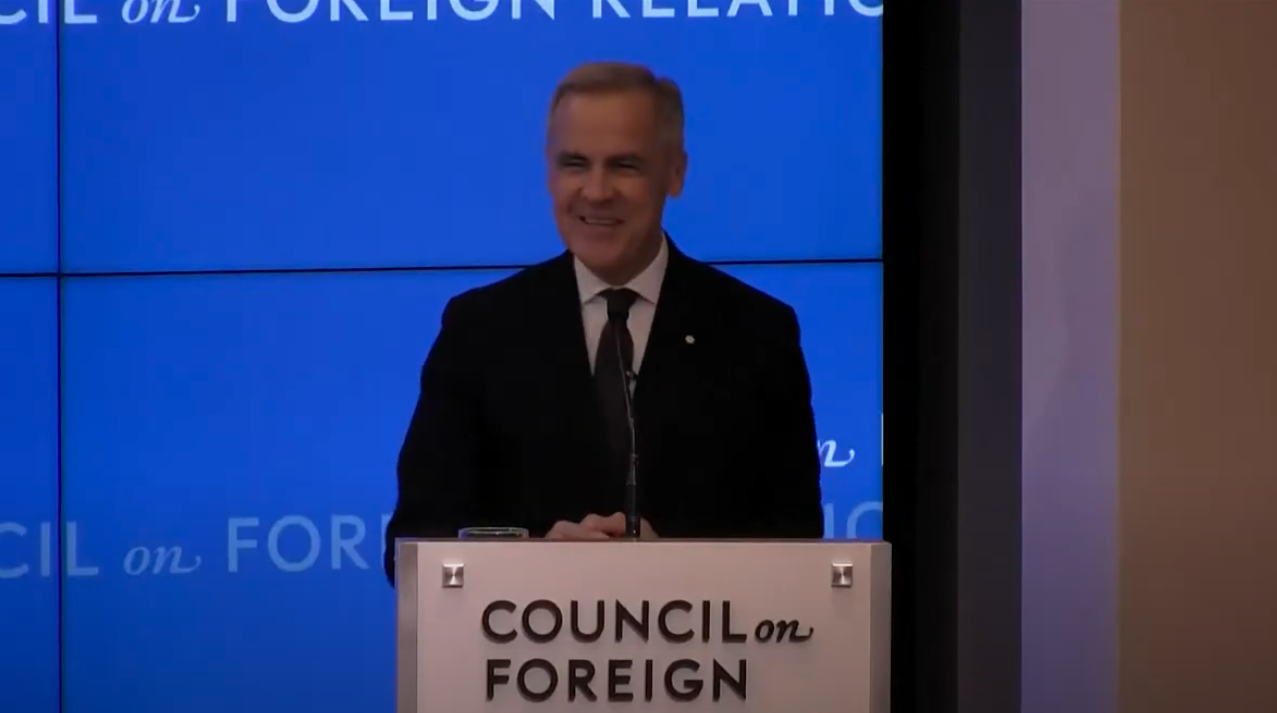Top Stories
Canada Shifts Foreign Policy, Recognizes Palestinian Statehood

Canada has officially recognized Palestinian statehood, marking a significant shift in its foreign policy. This decision came just before the High-level International Conference for the Peaceful Settlement of the Question of Palestine at the UN General Assembly, coinciding with Rosh Hashanah. Previously, Canada had supported a two-state solution as a negotiated settlement since 1947. The announcement was made by Prime Minister Mark Carney a day earlier than anticipated, emphasizing that this recognition is a response to the current geopolitical landscape.
The recognition follows a series of statements from leaders in Western nations, including UK Prime Minister Keir Starmer, who also announced recognition over the weekend, along with Australia and Portugal. France’s Emmanuel Macron is expected to follow suit. Carney highlighted the challenges posed by Hamas, stating that its actions have created an environment where a peaceful coexistence seems increasingly unattainable. He mentioned that “it is now the avowed policy of the current Israeli government that ‘there will be no Palestinian state,’” which he argues necessitates Canada’s recognition of such a state.
Coordinated International Effort
Carney framed Canada’s new stance as part of a broader international initiative aimed at preserving the two-state vision. He faced criticism from political opponents and Jewish organizations, who contend that this recognition may legitimize Hamas and undermine Israel’s security. Carney countered these arguments by asserting that peace and security for Israel can only be achieved through a comprehensive two-state solution.
The decision also reflects Palestinian Authority (PA) commitments to Canada for necessary reforms, which include plans for general elections and disarmament of Hamas. Over 150 countries currently recognize Palestinian statehood, and discussions at the UN are progressing based on principles laid out in the New York Declaration of July 2023. Despite this recognition, Carney and Minister of Foreign Affairs Anita Anand have clarified that full normalization of relations will depend on the PA meeting set conditions.
In a recent statement, Anand distinguished between recognition and normalization, stating, “Normalization differs from recognition. Recognition is binary. Either you recognize or you do not. Normalization is a process.” This indicates that Canada will maintain a degree of discretion regarding its diplomatic relations with the PA based on the fulfillment of these conditions.
Responses from Various Stakeholders
Political reactions to Canada’s decision have been mixed. Mount Royal MP Anthony Housefather reiterated his earlier stance that a negotiated agreement is essential for lasting peace. He emphasized that both Israelis and Palestinians must find a way to coexist securely. Conversely, Israeli officials expressed profound disappointment, with the Embassy in Ottawa urging the Canadian government to reconsider its decision.
Ambassador Iddo Moed reminded Canadians that Israel is actively engaged in efforts to rescue hostages held by Hamas and called for support through direct negotiations rather than unilateral recognition. The embassy warned that Canada’s distancing from Israel could exacerbate antisemitic sentiments in the country.
Opposition figures like Deputy Leader Melissa Lantsman criticized the timing of the recognition, suggesting it undermines Canada’s international credibility and endorses terrorism. Lantsman argued that this decision sends the wrong message, potentially emboldening violent groups and fostering an environment of insecurity.
Advocacy groups have also weighed in. B’nai Brith Canada condemned the recognition as yielding to international pressure without sufficient guarantees from the PA, which they claim has a history of failing to deliver on promises. Richard Robertson, the group’s director of research and advocacy, stated that this recognition jeopardizes the peace process by deepening divisions between Israelis and Palestinians.
In contrast, some groups, like JSpace Canada, welcomed the move and argued that it reflects a moral imperative to seek peace. They emphasized that the international community must actively engage in fostering a viable two-state solution to ensure safety and security for both Israelis and Palestinians.
As discussions continue, the implications of Canada’s recognition of Palestinian statehood remain complex and multifaceted. The move has reignited debates about the future of Israeli-Palestinian relations and the broader geopolitical dynamics in the region.
-

 Science3 months ago
Science3 months agoToyoake City Proposes Daily Two-Hour Smartphone Use Limit
-

 Top Stories3 months ago
Top Stories3 months agoPedestrian Fatally Injured in Esquimalt Collision on August 14
-

 Health3 months ago
Health3 months agoB.C. Review Reveals Urgent Need for Rare-Disease Drug Reforms
-

 Technology3 months ago
Technology3 months agoDark Adventure Game “Bye Sweet Carole” Set for October Release
-

 World3 months ago
World3 months agoJimmy Lai’s Defense Challenges Charges Under National Security Law
-

 Lifestyle3 months ago
Lifestyle3 months agoVictoria’s Pop-Up Shop Shines Light on B.C.’s Wolf Cull
-

 Technology3 months ago
Technology3 months agoKonami Revives Iconic Metal Gear Solid Delta Ahead of Release
-

 Technology3 months ago
Technology3 months agoApple Expands Self-Service Repair Program to Canada
-

 Technology3 months ago
Technology3 months agoSnapmaker U1 Color 3D Printer Redefines Speed and Sustainability
-

 Technology3 months ago
Technology3 months agoAION Folding Knife: Redefining EDC Design with Premium Materials
-

 Business3 months ago
Business3 months agoGordon Murray Automotive Unveils S1 LM and Le Mans GTR at Monterey
-

 Technology3 months ago
Technology3 months agoSolve Today’s Wordle Challenge: Hints and Answer for August 19









